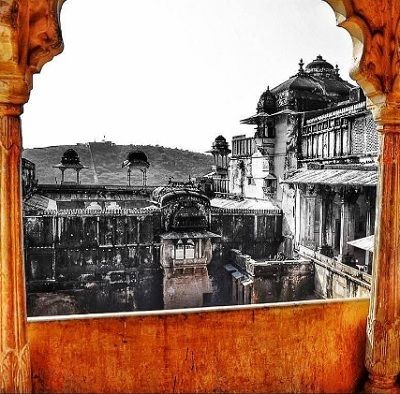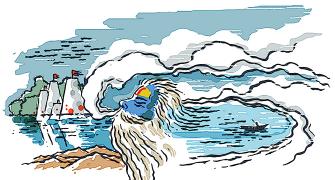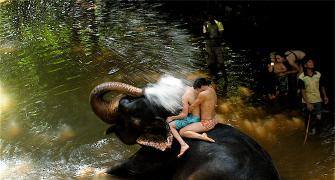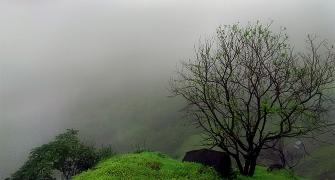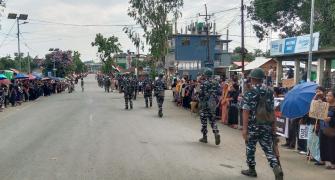The Jungle Book writer had said, 'Jeypore Palace may be called the Versailles of India; Udaipur's House of State is dwarfed by the hills round it and the spread of the Pichola Lake; Jodhpur's House of Strife, gray towers on red rock, is the work of giants, but the Palace of Bundi, even in broad daylight, is such a palace as men build for themselves in uneasy dreams -- the work of goblins rather than of men.'
Prerna Raturi visits Bundi.
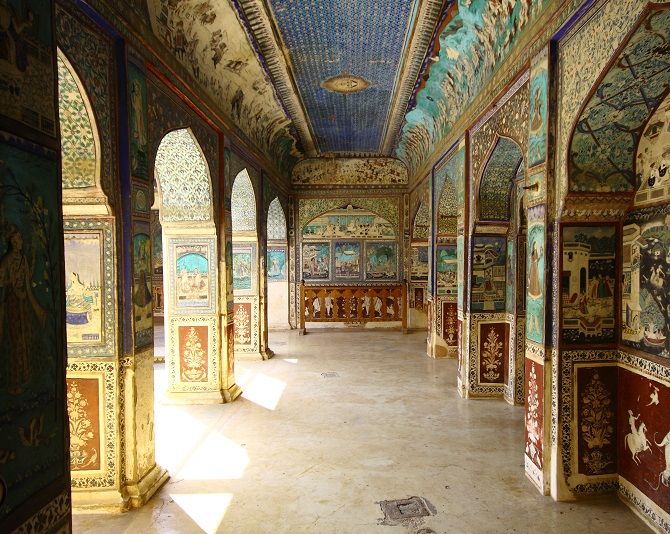
Lead photographs: James Bailey/Flickr and @beingrajasthaniofficial/Instagram.
Dressed elaborately, she's pouring herself a drink with a 'to hell with it all' expression. Eyebrows arched, she's not dainty with the glass or the decanter.
In a size similar to most other miniature painting murals in Ummed Bhavan Palace, Bundi, this one is a personal favourite. After all, how often do you see miniature paintings depicting women as taking time off from leaning on men's arms, being fondled by them, dancing with Krishna, or generally posing with a faraway look in their eyes?
This particular mural is just one of the many reasons to visit the town of Bundi and climb the steep, cobbled path up to the14th-century Taragarh Fort, on to Bundi (Garh) Palace.
There are scores of other miniatures to fall in love with at the open-air art gallery, aptly called Chitrashala, which is a part of the palace that was built between 17th and 18th century. The Chitrashala was commissioned by Rao Ummed Singh, who ruled Bundi from 1739 to 1770.
The subject for the murals reflect the two phases of his life -- as a ruler, and as one who renounced the throne and lived a hermit's life. Thus, while a section has vibrant court scenes, birds, hunting escapades, men and women dancing and admiring nature, the other, bigger area has murals depicting the various gods from the Hindu pantheon, scenes from the Ramayana, Lord Jagannath, a map of the nearby Nathdwara Temple, and so on.
Painted mostly in hues of blue and green, these murals have stood the test of time and stun you with their detailing and variety of subjects.
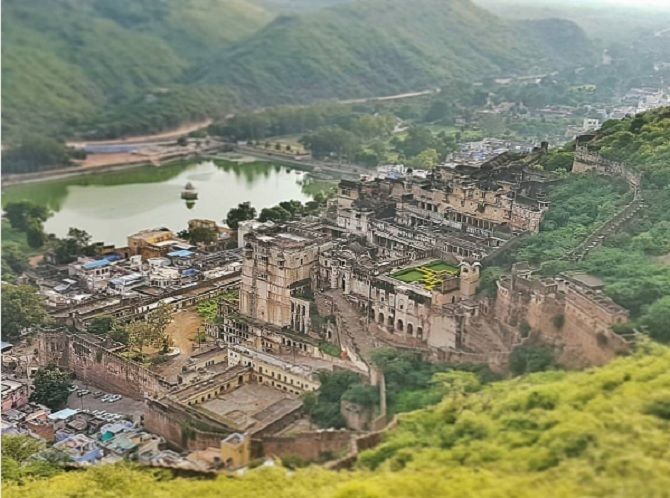
Photograph: @instabundi/Instagram.
The Taragarh Fort -- named for its layout like that of a tara (star) -- in itself may be a little rundown, but the views it offers from its ramparts are breathtaking.
Rudyard Kipling, who is said to have written Kim while in Bundi, has this to say about the fort: 'Jeypore Palace may be called the Versailles of India; Udaipur's House of State is dwarfed by the hills round it and the spread of the Pichola Lake; Jodhpur's House of Strife, gray towers on red rock, is the work of giants, but the Palace of Bundi, even in broad daylight, is such a palace as men build for themselves in uneasy dreams -- the work of goblins rather than of men.'
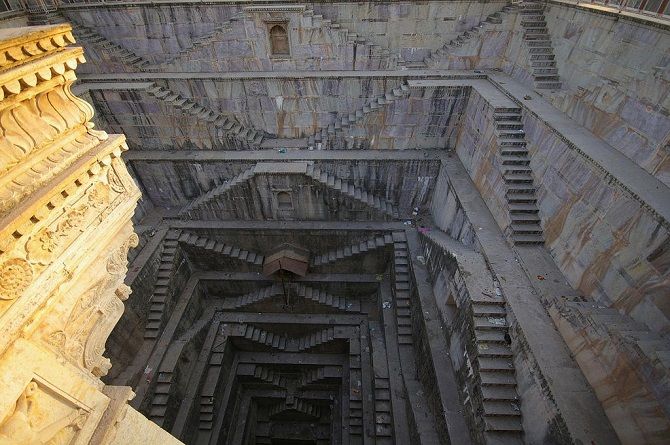

Photograph: Andrea Kirkby/Flickr and Nevil Zaveri/Flickr.
It isn't just the Chitrashala and the fort that will leave you mesmerised.
Bundi town is dotted with innumerable other works of art, be it architecture, baoris, or stepwells, temples, and the many paintings and drawings on the façades of households, which are reminiscent of the Bundi School of Art.
Step into any one of the handicraft shops and you can choose miniature paintings done on the plain side of papers, mostly old letters, bonds and court rulings.
The best time to visit would be now, when everything is a verdant green following the monsoon, and the heat wave has receded.
Also, the Bhoraji ka kund stepwell is a haven for birdwatchers post-monsoon.
Take a sneak-peek at the week-long art residency, Chitrashala, which takes place at the scenic lake hotel, jüSTa Lake Nahargarh Palace, Chittorgarh. Artists from all over the world create works in mixed media, oil, water colour and installation art, which is then exhibited at the property.
